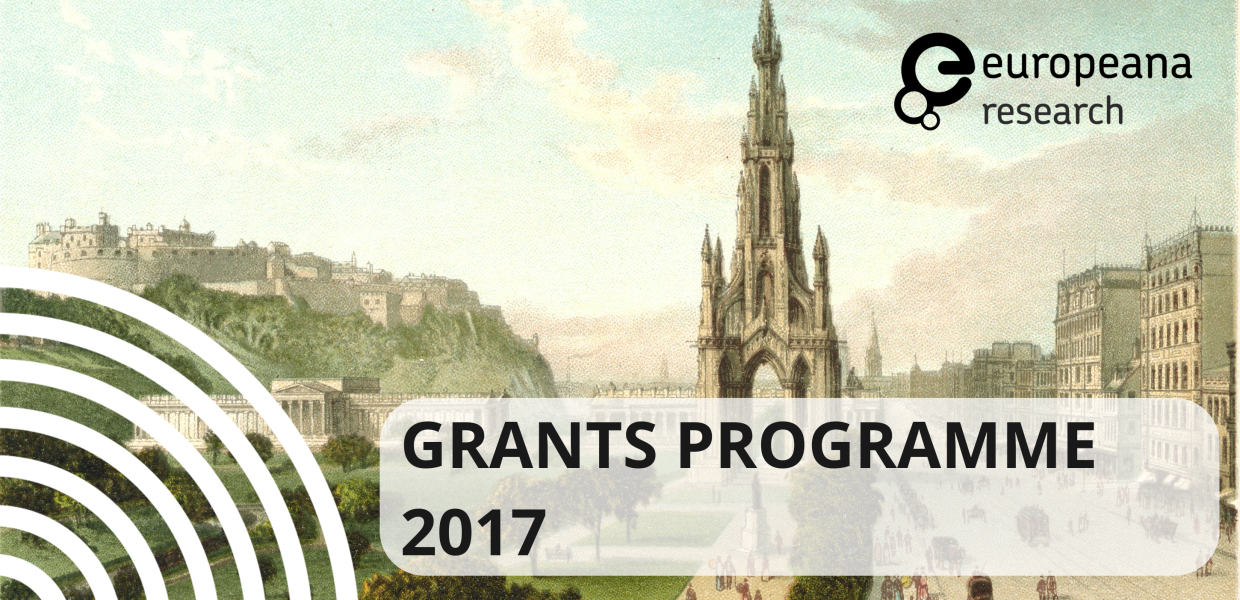Europeana Research Grants Programme: 2017 Call for Submissions
The Europeana Grants Programme 2017 is now closed for applications.
The focus for this year’s grant proposals is intercultural dialogue in its broadest sense.
2 November 2017 Update:
Please note that for your application to be eligible you must be affiliated to a EU or EFTA institution, i.e. a European university or research centre (applications from EU candidate countries will also be permitted). This is a condition of the funding from the European Commission. As we feel this may not have been clear enough in the original call, we are extending the call for submissions by one more week. The deadline is now 12 November 2017 24:00 CET.
--
Visit the Grants Programme main page and get inspired by last years' winners.
In European Cultural Heritage Strategy for the 21st Century, the Council of Europe recognized that ‘[c]ultural heritage, in all its components, tangible and intangible, is a key factor for the refocusing of our societies on the basis of dialogue between cultures, respect for identities and diversity, and a feeling of belonging to a community of values. Cultural heritage can play a key role as a means of building, negotiating and asserting identity’ (2017, page 6).
We encourage applicants to come up with individual research projects which make use of Europeana Collections content to showcase and explore the theme of intercultural dialogue. Applicants should employ state-of-the-art tools and methods in digital humanities to address a specific research question. We expect to see applications employing as much of the Europeana platform (e.g., the API, metadata,) as possible.
- Who can apply?
You should be a postgraduate or doctoral student, or an early career scholar (1) in any field within the humanities, social sciences, archival or information sciences.
- How will Europeana Research be involved in your project?
You will be in charge of your own project and free to pursue it according to a schedule you define, provided that you complete the project by 1 May 2018. Selected members of the Europeana Research team and Advisory Board will be available to offer guidance and advice, based on their area of expertise and in accordance with your needs.
- What funding is available?
Funding is available for up to 8,000 euros per successful project. Up to three successful proposals will be funded. Funding can be used for the buyout of researcher time, travel, meetings, or developer costs. This funding does not include overheads
- What are the important dates that you should keep in mind?
The deadline for applications has been extended to 12 November. Proposals will be reviewed by early December 2017 and the list of successful projects will be announced shortly thereafter.
- What should the duration of the projects be?
Each project will be funded for one to six months, but all final reports should be submitted in English by 1 May 2018.
- How should you apply?
Fill in the submission form via Easychair
- What should be included in the proposal document?
Your proposal should include your research question, your methodology, what (digital) tools you’ll use, what parts of the Europeana platform you’ll use, a work plan, and any engagements that will form part of your work (speaking, outreach, dissemination engagements or publications).
- What should the work plan contain?
The work plan will be used to see if the project is feasible and well-thought out in terms of schedule and resource allocation. Submitting a Gantt chart or an equivalent work plan would be preferred. It should contain a clear breakdown of tasks, with the funding allocation spread over those tasks, resulting in a transparent workflow.
Do you have a question? Then don't hesitate to send us an e-mail about the Research Grants Programme at [email protected]
1. We don't want to put a strict limit on how long our applicants have been researchers. As long as you can legitimize why you think Europeana funding would help you with your project, or you can explain how you wouldn't be able to find the needed funding for your project in your own institution, we do accept researchers that may in general not be considered 'early career'. ↩




